I was moved by the Channel 4 documentary on Hunting the Football Trolls featuring Jermaine Jenas. He had bravely spoken openly about his emotions and feelings on being targeted for racial slurs and hateful messages on social media. I applaud his bravery for speaking out. It brought it home to me how people could dehumanise others so easily, especially those that they do not know personally. It made me wonder how someone could objectify others without conscience.
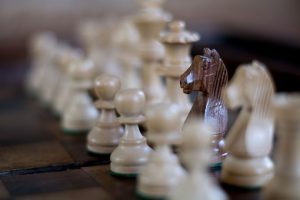 I understand racism, prejudices and discrimination because I had endured the pain and hurt myself, as a child growing up in the UK. I had never known it before, in Thailand where I was born. However, I had grown up thinking that as a minority, it must have been something that we (as the minorities) had to put up with. Not many people speak out about it thirty years ago. Not that I recalled. It was not okay then, and it is still not okay now. I am thankful that more and more people are spoken up about it.
I understand racism, prejudices and discrimination because I had endured the pain and hurt myself, as a child growing up in the UK. I had never known it before, in Thailand where I was born. However, I had grown up thinking that as a minority, it must have been something that we (as the minorities) had to put up with. Not many people speak out about it thirty years ago. Not that I recalled. It was not okay then, and it is still not okay now. I am thankful that more and more people are spoken up about it.
In this blog, I want to share my intrapsychic processes in dealing with any persons who objectify others. If you have been a subject of hate on social media or in person, you might find these processes helpful too. If you are experiencing racial attacks in your daily life, again, it might help to learn that you, too, can overcome their racial prejudices.
 In my experience, I found that individuals who personally attack others at their core being have a deficiently low sense of self-worth within themselves. They do not want others to know this and will put up a front by attacking others. After all, no one is going to be looking or noticing them. I had come to realise that the bullies were often bullied by others, and they were simply repeating learned helplessness behaviours by bullying, discriminating, racially attacking you. They had learned that they didn’t have a choice and was helpless to accept the situation. At their core being, they may feel insecure and hurting. They mimic the unacceptable behaviours believing that it must be powerful to do the bullying to others.
In my experience, I found that individuals who personally attack others at their core being have a deficiently low sense of self-worth within themselves. They do not want others to know this and will put up a front by attacking others. After all, no one is going to be looking or noticing them. I had come to realise that the bullies were often bullied by others, and they were simply repeating learned helplessness behaviours by bullying, discriminating, racially attacking you. They had learned that they didn’t have a choice and was helpless to accept the situation. At their core being, they may feel insecure and hurting. They mimic the unacceptable behaviours believing that it must be powerful to do the bullying to others.
Just a caution, the hypotheses below offers a psychological perspective of an inner working on one’s mind, both as a sufferer and as the perpetrator. It is not an excuse for any individuals and especially those that cause harm to others. It is a subjective supposition based on my experiences as a sufferer and from learned experiences with perpetrators. The purpose of highlighting their perspectives is to understand the underlying behaviours and the roles they inadvertently played in the “drama triangle”. The drama created in an insecure person is inadvertently played out in reality as they co-create the inner world, in the real world.
 Introducing drama triangle?
Introducing drama triangle?
The drama triangle is a psychological model that was first described by Stephen Karpman in 1961, who was a student of Eric Berne, the founding father of Transactional Analysis developed in the 1950s. Karpman explained the insidious nature of the psyche in which we all, unconsciously, play a part in the game of life. He went on to explain how we can fall victim to the roles in our life script. He also described how we could all get caught in the destructive cycle and struggle to break free from its toxic enmeshment. It did not begin with ourselves, but you can end the maintaining cycle. You do have a choice!
The purpose of discussing this theorem is not about blame but rather to highlight that we are all subjected to learned helplessness in its dysfunctional social interactions, which has increasingly become a problem in modern societies, especially on online social media platforms.
As mentioned at the beginning of this article, it begins with online abuse, trolling, hateful and abusive messages (directly or indirectly). It begins in the dysfunctional household in which warmth, love, and compassion are missing. It starts as self-defecation, self-loathing and self-hatred, and then it spreads outwards out of our pores infecting and targeting others. It was negatively reinforced into our being from adverse parental experiences of our parents. They may have been unconsciously ‘acting out’ what was normal within their household. And until we have an awareness of our misbehaving, we remain oblivious of our behaviours towards others. Let’s take a closer look at each of the roles in the drama that we participated in and helped co-created.
“We have a choice about the roles that we play in the game of life. Which part will you choose to play in your next role?”
As the victim (the suffers)
Generally, no one willingly, readily or consciously chooses to be a victim. It is something that is forced or happens to us. The sufferer often feels trapped, helpless and hopeless to do something about the situation. Especially when the abuse is online, social media sites are not proactive in dealing with the abuse. And especially, after you reported the abuse you may not see any real changes.
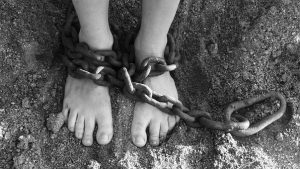 Being victimised predominantly begin in childhood. As a child, you may feel trapped when you are told off, reprimanded or abused by someone older/bigger and more powerful, usually a parent or an older sibling. As you internalised, you inadvertently assumed being powerless because you are smaller and have no power. You question your sense of worth and wonder why it happened to you. If you had no choice and could not venture out on your own, and you had to stay in a dysfunctional environment, it leaves you vulnerable to defend yourself against future attacks. You become learned helpless in situations and seek out other destructive engagements because it was familiar. This internalisation happens unconsciously to you. You had unwittingly become a victim because of your negative childhood experiences, negative reinforcement, abuse and cruelty.
Being victimised predominantly begin in childhood. As a child, you may feel trapped when you are told off, reprimanded or abused by someone older/bigger and more powerful, usually a parent or an older sibling. As you internalised, you inadvertently assumed being powerless because you are smaller and have no power. You question your sense of worth and wonder why it happened to you. If you had no choice and could not venture out on your own, and you had to stay in a dysfunctional environment, it leaves you vulnerable to defend yourself against future attacks. You become learned helpless in situations and seek out other destructive engagements because it was familiar. This internalisation happens unconsciously to you. You had unwittingly become a victim because of your negative childhood experiences, negative reinforcement, abuse and cruelty.
Being a victim DID NOT begin with you.
As the perpetrator (the abuser)
Individuals who were brought up in an abusive, oppressive, hostile, and critical environment may have inadvertently fallen into being a victim initially. They had helplessly learned what was normal in the abnormal and dysfunctional family system. They learned from their caregivers and mirrored their role as an abuser and persecutor. They learned to punish others by abusing them, to hurt others just as they were hurt.
 These individuals blame their victims for their own weaknesses. As a child, we could not and do not blame our parents for their misbehaving and misguided parenting. The child magically believed that their parents are Gods, according to John Bradshaw On the Family. The concept of magically thinking describes how a child idealises their parents within the family system. The child would not and could blame themselves as their cognitive functions are still developing. And if the child does not learn to take responsibility for their actions, they will grow up and continue to blame others for their flaws. Individuals with toxic and negative nurturing experience externalised behaviours such as physical aggression, verbal abuse, relational aggression, hate and acting out any forms of hostility and violence, physically, mentally, psychologically or verbally.
These individuals blame their victims for their own weaknesses. As a child, we could not and do not blame our parents for their misbehaving and misguided parenting. The child magically believed that their parents are Gods, according to John Bradshaw On the Family. The concept of magically thinking describes how a child idealises their parents within the family system. The child would not and could blame themselves as their cognitive functions are still developing. And if the child does not learn to take responsibility for their actions, they will grow up and continue to blame others for their flaws. Individuals with toxic and negative nurturing experience externalised behaviours such as physical aggression, verbal abuse, relational aggression, hate and acting out any forms of hostility and violence, physically, mentally, psychologically or verbally.
The majority of a bully or an abuser has been the subject of abuse themselves, which may be why they bully or abuse others to make themself feel superior, and to feel powerful. This is not an excuse because some people who were bullies had not resorted to becoming one themselves.
As the Rescuer (the helper)
Individuals who identify themselves as a rescuer will attempt to help the sufferers and intervene to save them from the bullies or the abusers. They suffer enormously from guilt if they do not interfere. They have a positive intention to help the person, but they could not see the consequence of their behaviours and may often worsen the situation. This individual has a strong desire to protect others, but it can keep the victim arrested in their development as they become dependent on the person to fight their battle.
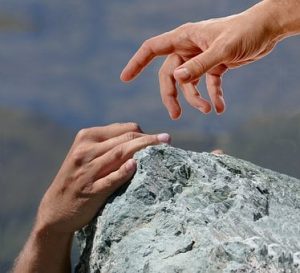 The Rescuer has a propensity to focus on helping and failing to see their unconscious gains. These unconscious gains include being good because one is needed or wanted, feeling important, feeling God-like, and feeling helpful or valuable, all of which satisfy the egoic mind.
The Rescuer has a propensity to focus on helping and failing to see their unconscious gains. These unconscious gains include being good because one is needed or wanted, feeling important, feeling God-like, and feeling helpful or valuable, all of which satisfy the egoic mind.
I had been bullied, verbally and mentally. I was bullied in the first two years of secondary school, and I found a way to stand up to the bullies. I was bullied because I was Thai and looked essentially different to the majority of white children in the class. I was a minority and could not speak English. It seemed like I was the easy target! As the only oriental at school, I was objectified and depersonalised.
It has not been on my conscience to pay it forward at any stage because I believed in karma. I remember thinking that it would not be fair to treat others in the same way because I didn’t like it. Thus, it is not always the case that those who were bullied become a bully.
I had been a victim; however, I never felt sorry for myself or thought why me. I thought, what’s wrong with you, rather than what’s wrong with me? What happened to you to be so mean? How did you come to be full of rage and hate? In cases of individuals who target others for their appearances, specifically online, they think it is safe to hide behind their masks and the internet. These individuals dehumanise, criticise and devalue someone often because they projected something they disliked within themselves onto others. It is far easier to mock them than it is to knock ourselves.
I had never been a perpetrator. It did not sit well with me morally, and I had never consciously wished harm onto another. If I was with someone that bullies others, I removed myself from the toxic person. If I don’t like something to be done unto me, I would not want it done onto thee. I considered the hurt and pain of the catcalls, and I cannot put anyone through any form of (verbal or physical) abuse. I do not want bad karma or the negative consequences of the law of attraction.
I am a rescuer. I want to help others and it was unsurprising that I am a counsellor/therapist. However, I had been compromised and thought that my good intentions were helpful and useful to others. It is true that there is a sense of satisfaction in helping and being in service of others. But, it can be a hinder to their development and growth if you take away the learning experiences for the individual.
“We learn by making mistakes. We learn from our pain and suffering. In light of those experiences, we grow and thrive as a unique spiritual being.”
How to break out of the drama triangle?
Here are some helpful tips on how to break free from the drama triangle. It is never too late to choose another role. You just need to remember that you DO have a choice. So, choose wisely.
Recognise your position in the drama triangle
Recognising whereabout you are on the drama triangle will help you to be aware of your role when you are relating to others. When you recognise your part, you can decide if playing in the triangle is helpful to you. We are all participants in the game of life, and how we play depends on our chosen role. We can challenge any position in life if they are no longer helpful. Once you realise that you have a choice, you can work toward breaking free from the confinement of the outdated role and step out of the drama triangle into a life worth living.
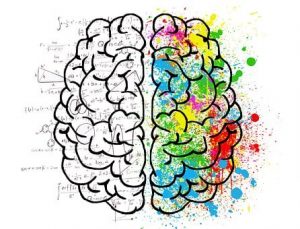 Be mindful and ask first, challenge later
Be mindful and ask first, challenge later
When you are mindful of others, you are less likely to jump to any form of illusion about what was said or who said what. On social media, we can easily misread, misunderstand and mis-take things the wrong way. In a mindful state, you will be prone to ask questions to find what more about what or why it was said. You would consider whether you understood the content or that the other person miscommunicated. Say: When you said that, what did you mean? Why did you say that?… I was hurt, upset, etc. What you said was untrue, insensitive, rude, hurtful etc.; why did you make those personal remarks? If you can be bothered to respond to the attackers. It is also safer and kinder to yourself to report, blocking them from seeing their contents entirely.
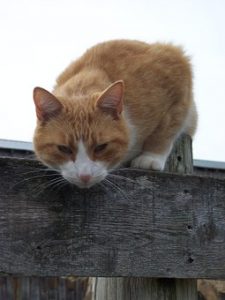 Be curious
Be curious
Curiosity is one of the core traits of our inner child. Curiosity gives us a sense of inquisitiveness to explore further what someone meant. Communication is a two-way process, and misunderstanding can happen when we relate to each other, especially in writing. Curiosity requires an investigation and encourages further dialogue. If you are being bullied, ask the bullier why they are bullying you? Say: When you said that, it upsets me, hurt me; etc. When you spoke to me that way or write those things about me, I felt humiliated, shame, or that I felt bullied, etc.
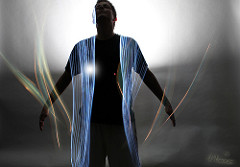 Stand firm and stand tall
Stand firm and stand tall
When you stand up for yourself against a bully, they may retaliate in response to your behavioural change. Your behaviour has consequences on others, just as you are influenced by another. However, standing firm and standing tall against any form of bullies or injustice is about facing up to and confronting the other. It is not an easy thing to do especially if it is unfamiliar to you. But, standing up for yourself may also be demonstrated in your body language, without words. Often when most of us face someone with bullish behaviour, we politely walk away. But, this might be an opportunity to stand your ground and test out your stance. It might be a look that says, you cannot treat me that way. It might be your long gaze at the person as they misbehaved. You can also consciously broadcast messages that say something like, you will not stand to be bullied, abused, violated, dehumanised, devalued etc. These are unspoken thoughts and convictions of your inner voice, speaking loudly in your psyche, directly project to the person as you continue to look at the individual. Standing firm online might include reporting it to the social media platform and the police. Standing firm might also include responding to the bullies and shaming them online and making them a focus rather than you.
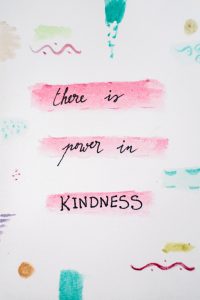 Rewind! And Be kind
Rewind! And Be kind
Kindness acts is a gesture of love for others. It shows that you are mindful and considerate of others, but not over your own needs. Kindness is powerful in relationship building and helps diffuse even the hardened mind. Kindness act is a balance of being considered and being equally important. A kind word can help lift someone’s day. Imagine how a kind act can help the person.
Making a change is never easy but it is not impossible. You can unlearn the way you used to do things, and relearn to do it differently. It may be unfamiliar to you but like anything worth doing, it will be rewarding.
As a final note, I just want to add that it is never okay to mistreat any other living beings. It is never acceptable to devalue, objectify, (verbally, mentally or physically) abuse or dehumanise anyone. After all, how would you like it if it happened to you?
It did not start with you, but it can end with you; you can change your beliefs, your mindset and your behaviours about something or someone. You can be the person who breaks the mould. Break the archaic societal rules embedded in the collective unconsciousness of rage or hate. Breakfree and break away from the racial, discriminatory and prejudiced trance.



 For example, when someone asked me to do something, I had previously thought it was a form of command because my experiences with authority have been negative.
For example, when someone asked me to do something, I had previously thought it was a form of command because my experiences with authority have been negative. In order to be connected to your inner world and find your inner sacred sanctuary, you got to want to know more about yourself.
In order to be connected to your inner world and find your inner sacred sanctuary, you got to want to know more about yourself. These acts of loving-kindness to others are false and unobtainable. It implies that you are kind and loving for sure, but you act and behave kindly and lovingly to others for the reciprocal acts. You cannot make anyone love you. But, we all do and try, and mostly in vain. This is because we have not learned to be kind and love ourselves first. It can take a long time to have Self-love, but we can begin with having kindness for ourselves.
These acts of loving-kindness to others are false and unobtainable. It implies that you are kind and loving for sure, but you act and behave kindly and lovingly to others for the reciprocal acts. You cannot make anyone love you. But, we all do and try, and mostly in vain. This is because we have not learned to be kind and love ourselves first. It can take a long time to have Self-love, but we can begin with having kindness for ourselves. Learning something new about yourself should be something that you like and find interesting. If you don’t like what you’re learning about yourself, then, you are not yet ready for this wondrous journey because you will learn some things that you might not like.
Learning something new about yourself should be something that you like and find interesting. If you don’t like what you’re learning about yourself, then, you are not yet ready for this wondrous journey because you will learn some things that you might not like. However, if you want growth and development, you do need to be flexible in your approach and processes. Being flexible and adaptable is a positive approach to dealing with the daily challenges of existence.
However, if you want growth and development, you do need to be flexible in your approach and processes. Being flexible and adaptable is a positive approach to dealing with the daily challenges of existence.